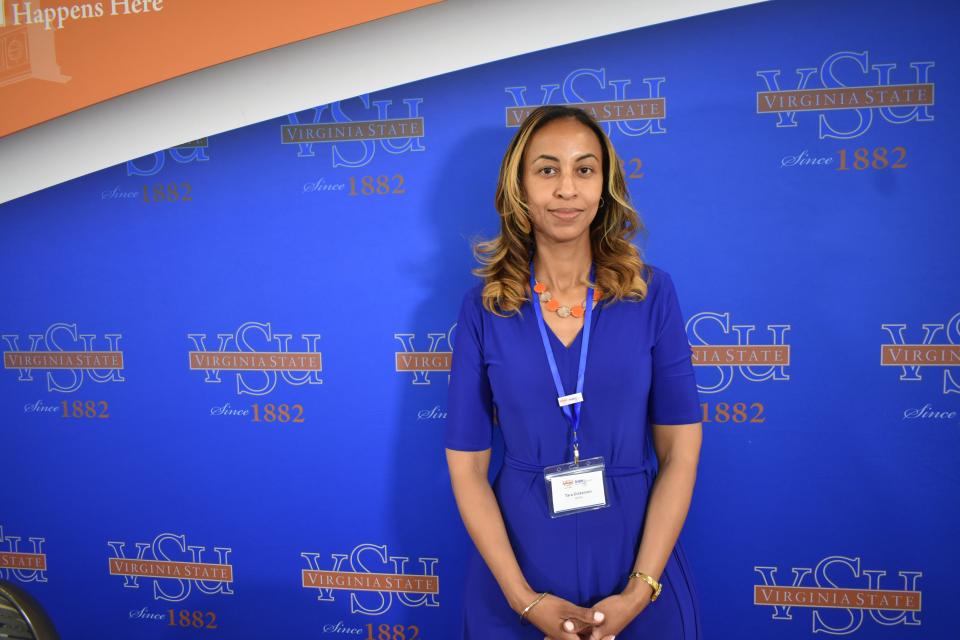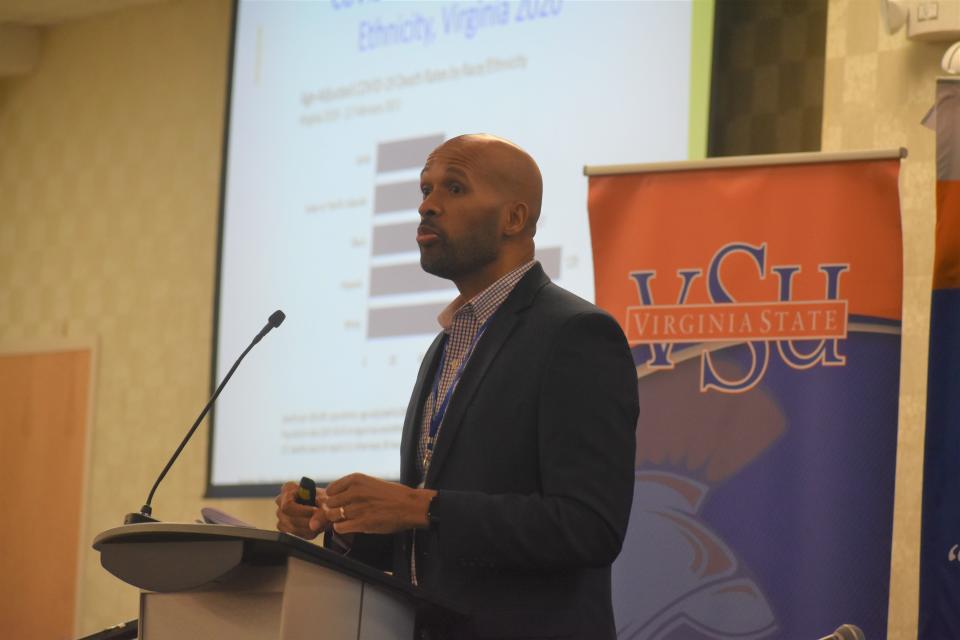Virginia State's new public health institute focuses on health inequities in minority communities

ETTRICK – Virginia State University says its new Public Health Institute will become the vanguard for underserved communities across the Crater Health District and the country.
VSUPHI held a public health forum, bringing together experts, students and community members from around the region to talk about solving problems that are causing drastically lower health rates among some of the local communities.
The University of Wisconsin’s annual County Health Rankings for 2022 were released last week. Petersburg was ranked the “least healthy” locality in the state for a second year running. Hopewell was near the bottom as well, dropping from fifth lowest, to third lowest in those rankings.
Dr. Bob Duhart is a pediatrician with Central Virginia Health Services in Petersburg. Now a seasoned professional, he recalled a dilemma he faced earlier in his career.
Shortly out of med school, Duhart started working for a private practice in South Richmond. Most of his patients in that part of the city were low-income. South Richmond is also a historically Black area of the city.
Doctors in low-income areas typically get less compensation because the people living in those areas don’t have good enough access to the resources needed to see a doctor, like private health insurance. A conglomerate of other factors can also keep people from seeing their doctors.
“I wasn’t making money, but I was doing fine. Keep in mind this was 30 years ago, but I was looking at my colleagues on a different side of town making $30,000 to $40,000 more than I was making, because they’re seeing a different clientele,” Duhart said, speaking at the public health conference at Virginia State University.
He had the option to move into a different community with more access to healthcare, or come to Petersburg where the city’s only pediatrician was retiring. He chose Petersburg because it needed his services. But he still witnesses the same problem, where physicians in nearby localities can make significantly more money.
“You can’t recruit millennials to come to Petersburg and make five figures. They can go somewhere else 30-mile radius and make twice as much,” Duhart said. “We didn’t go to medical school to be broke. So, it’s hard to recruit young physicians to come into a situation where they’re going to have to maybe take less than, unless they want to serve. And it’s hard to find people that just want to serve.”
There are significantly less healthcare providers in Petersburg because of these healthcare economics, compared to more affluent communities.
This is just one of a seemingly endless number of disparities that low-income communities – often predominantly Black communities – face when it comes to healthy life outcomes.
The main goal for VSU’s public health institute is bridging gaps causing those disparities. Results from the County Health Rankings show that the institute’s mission is that much more important.
“We as an HBCU decided that something needed to be done,” said Tara Dickerson, Executive Director for VSU’s Public Health Institute. “...Public health is everyone’s issue, whether it be gun violence prevention, whether it is reducing sexually transmitted diseases or teen pregnancy prevention and things of that nature. We’re here to be that beacon. The community is a majority of minorities.”

The Public Health Institute will grow research and community outreach to further understand and map systemic health disparities. It then wants to use that knowledge to help create and inform policy which could then address health disparities, like the ones seen in Petersburg and Hopewell.
VSUPHI has broadly prioritized the challenges of Health Disparities, Social Injustice, Digital Divide, Disease, and Culture and Health. More specifically, that could mean looking at ways to increase food access for people who are low-income, the dynamics of child poverty or researching possible biases in our healthcare systems.
One of the most important aspects of this endeavor is getting buy-in and cooperation from underserved communities.
"It's really important that we that we collaborate with the community because the last thing we'll do is jump into the community, say we have all the answers. Well, we don’t,” said VSU Provost Dr. Donald E. Palm, who was instrumental in beginning the Public Health Institute. “We really want show that the university is here to help. We need their help in order to move the needle.”
Keynote speaker Dr. Michael Royster is a Senior Vice President at the Institute for Public Health. He spoke about racism as a public health crisis. While he says policies are not being actively created to disadvantage people of color, nothing is being done to correct injustices.

“This cycle of inequity has continued throughout our society throughout generations, and policies that on the surface, are neutral, oftentimes just reinforce these inequities because they don't intentionally try to address them,” Royster said.
He outlined a few areas where the public health institute can cause impactful change for health outcomes. He spoke about collecting data that could help shape policies, policy development and evaluation of the current public health programs. Royster also commented on how important it is to engage with people who are affected by health disparities.
“That is oftentimes a different paradigm than what universities use but I think it’s really critical,” Royster said. “I think HBCUs can be leaders in that, again, with the unique perspectives of faculty, staff and students and the unique connections to communities.”
The public health institute is still in its infancy and is yet to offer degrees but plans to do so in the coming semesters. It plans to start offering bachelor’s and master’s degrees once fully implemented.
You can reach Sean Jones at sjones@progress-index.com. Follow him at @SeanJones_PI. Follow The Progress-Index on Twitter at @ProgressIndex.
This article originally appeared on The Progress-Index: Virginia State opens public health institute focusing on disparities

